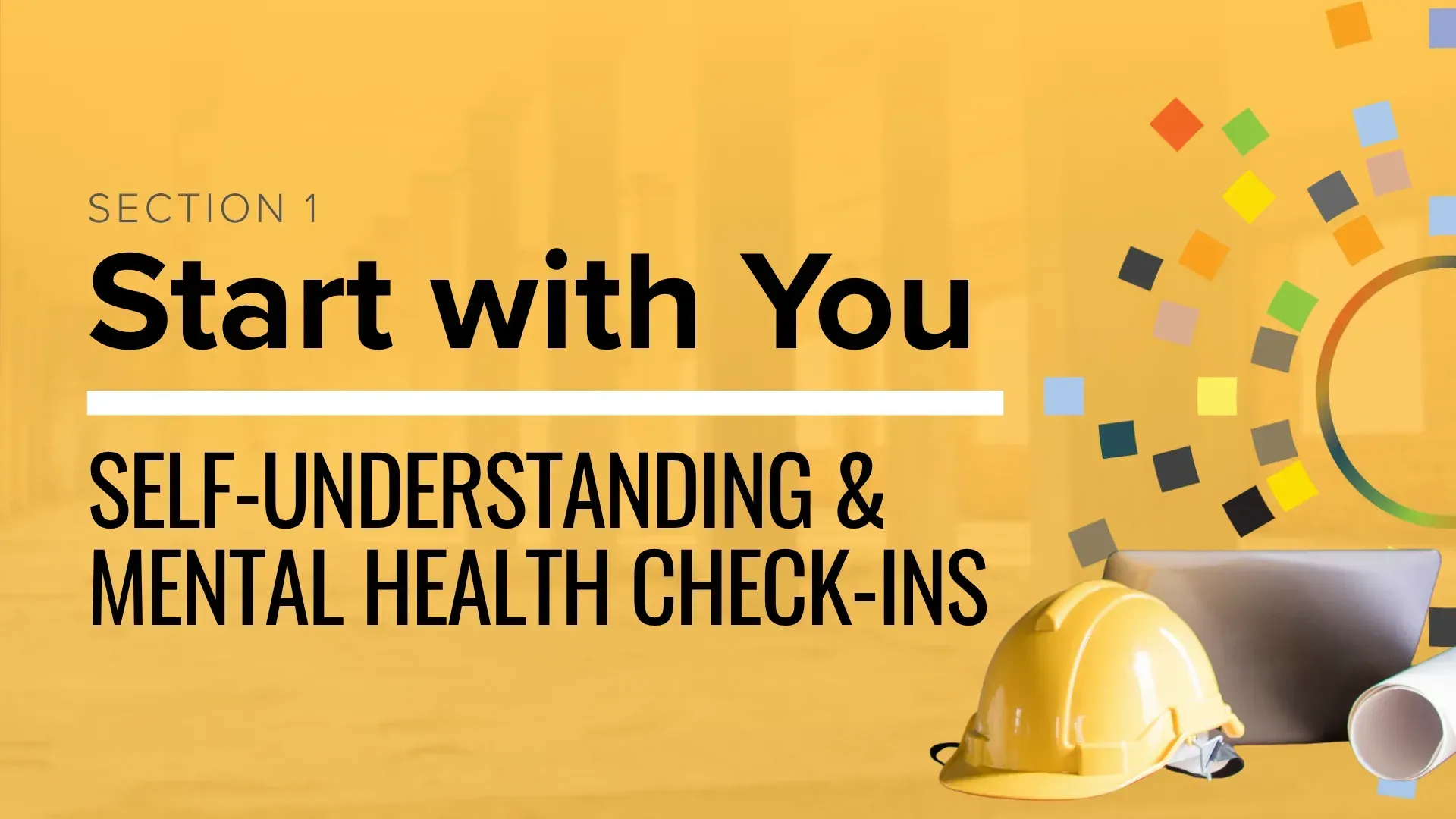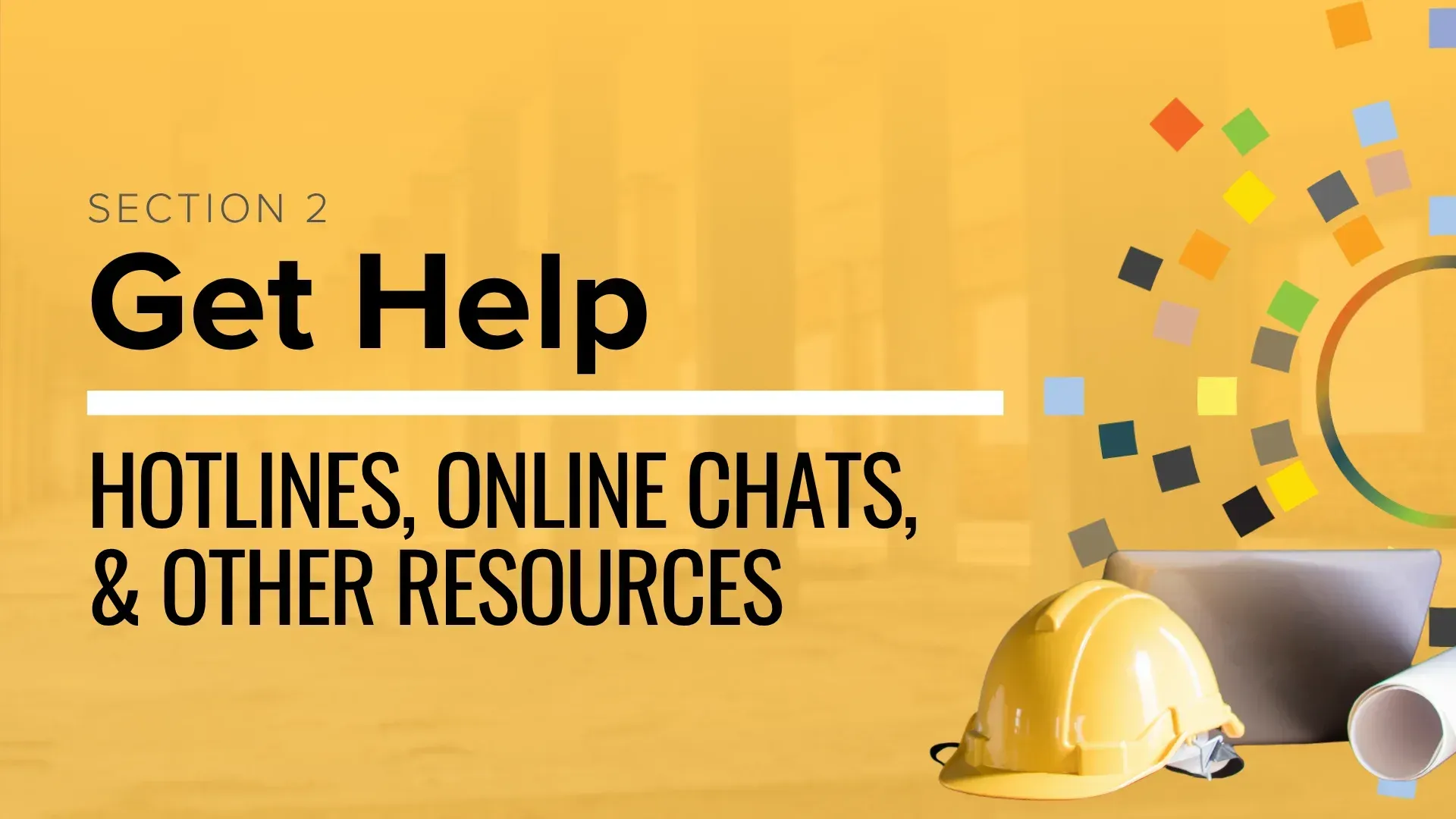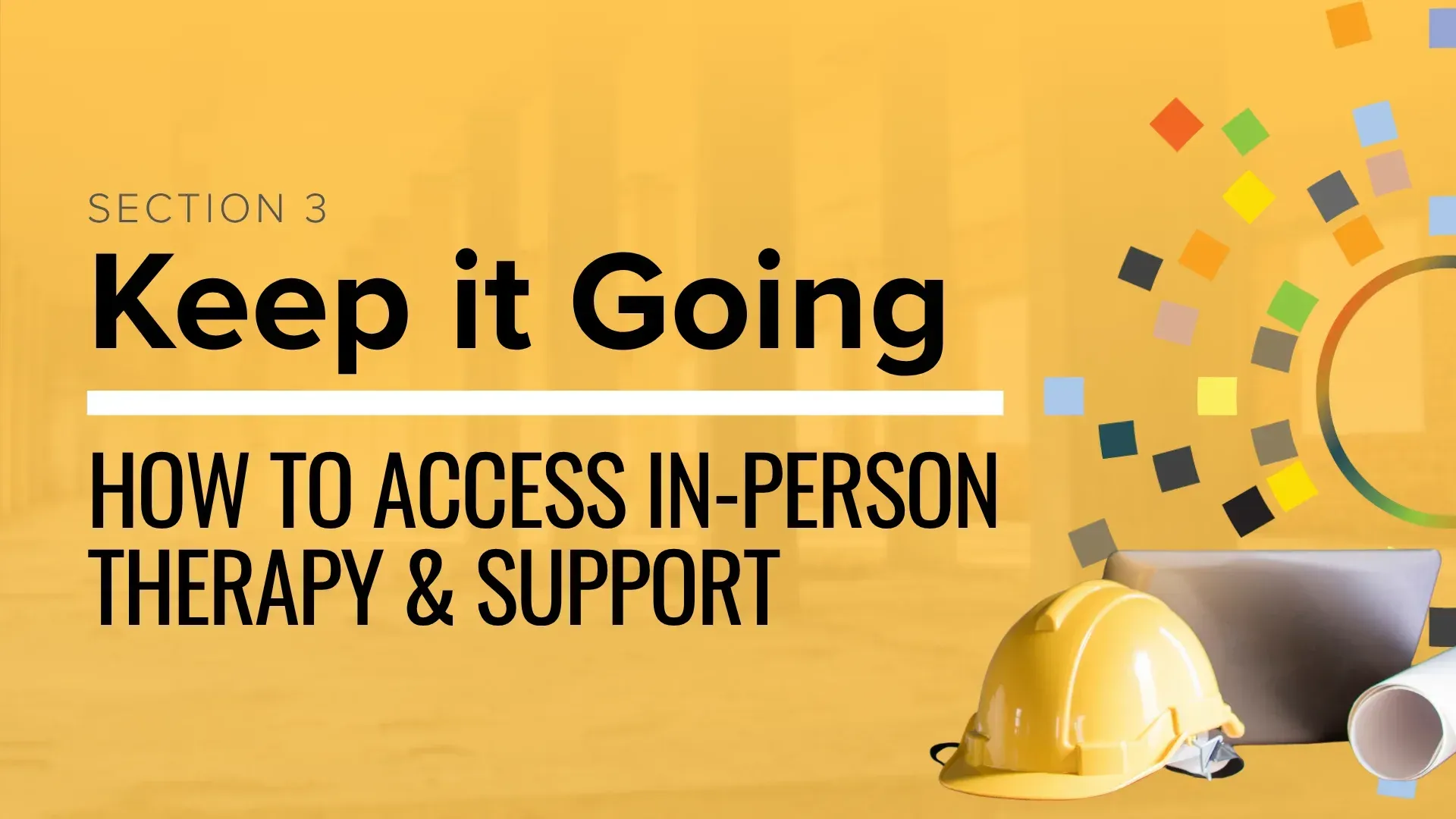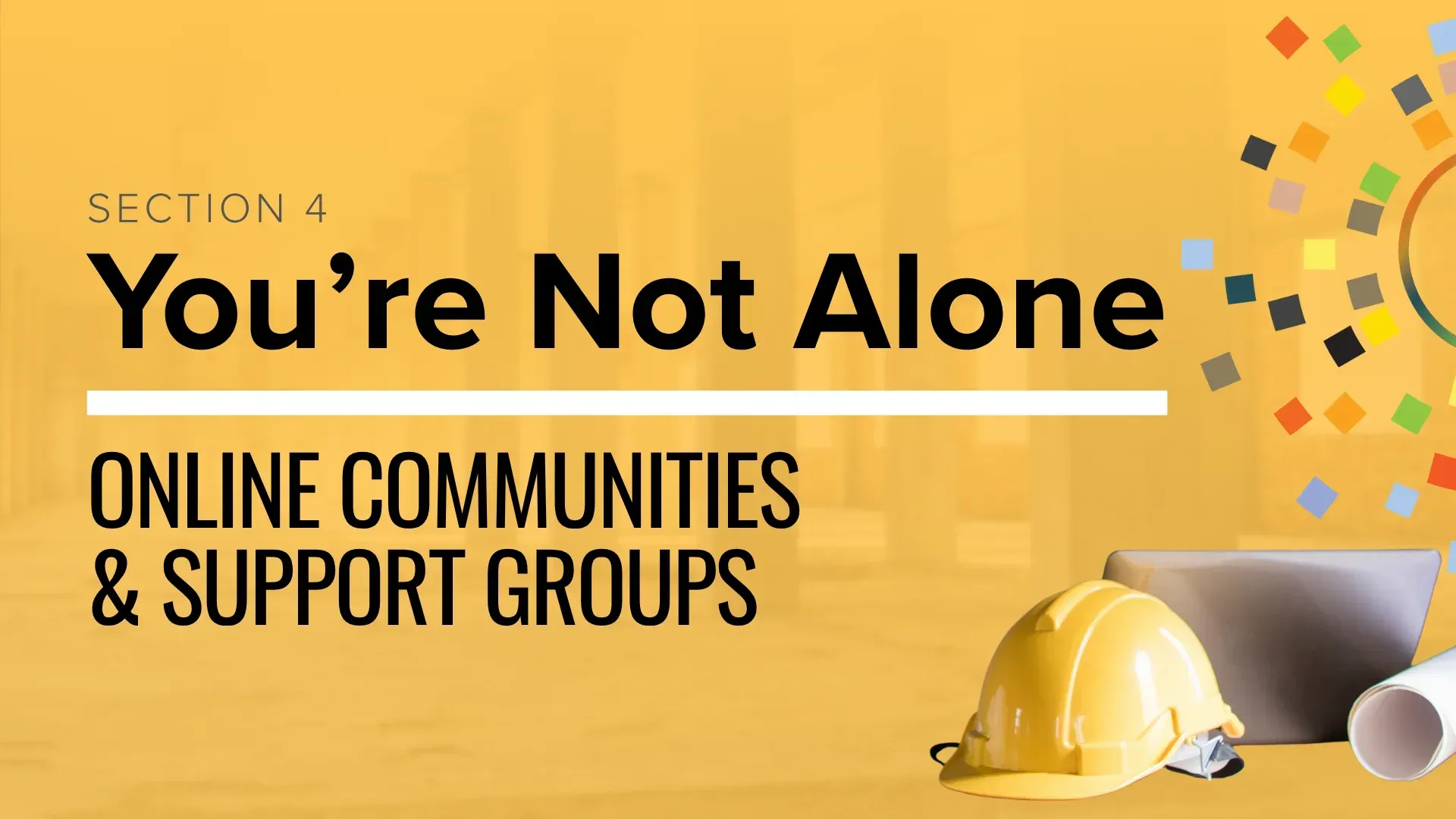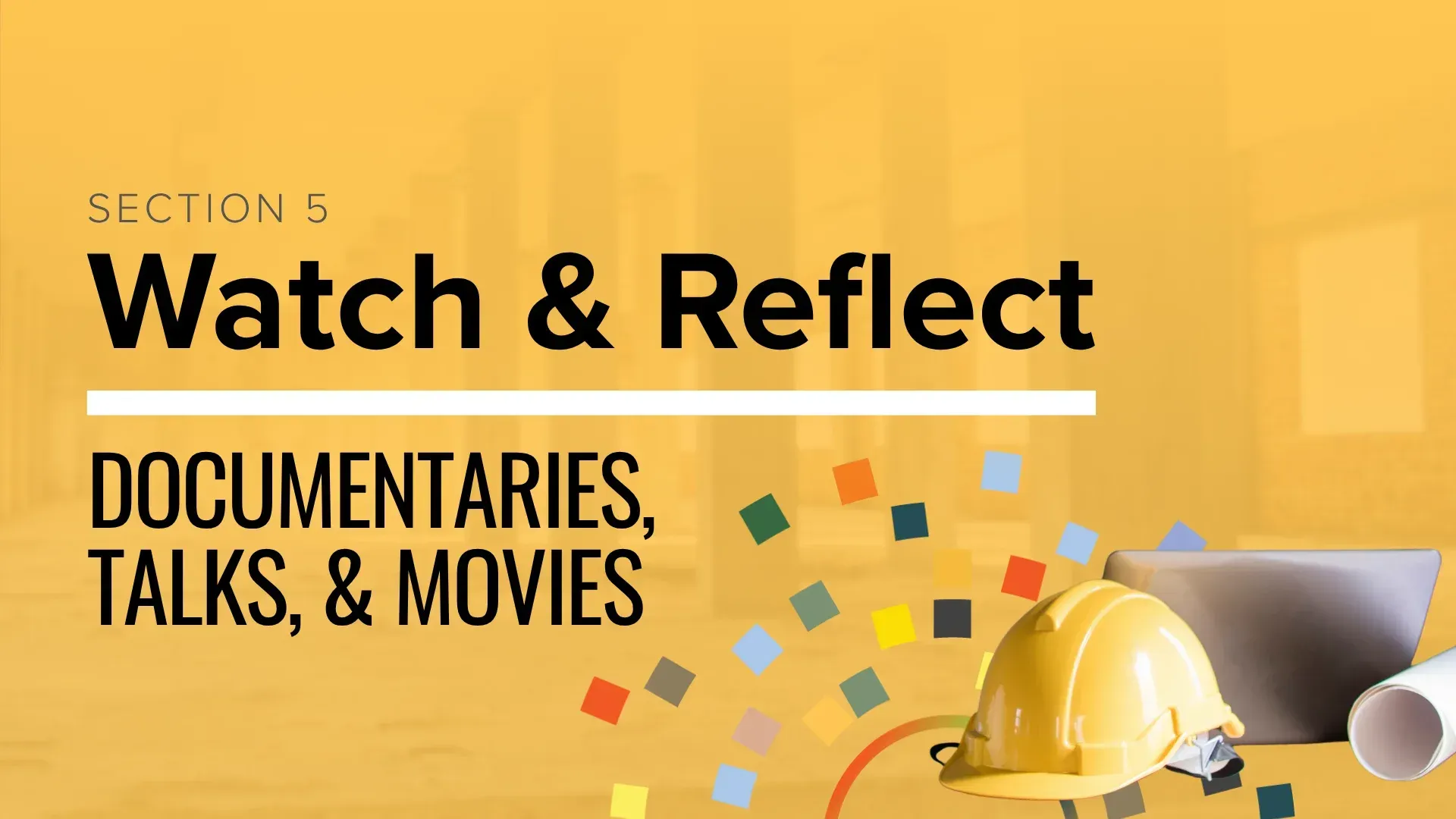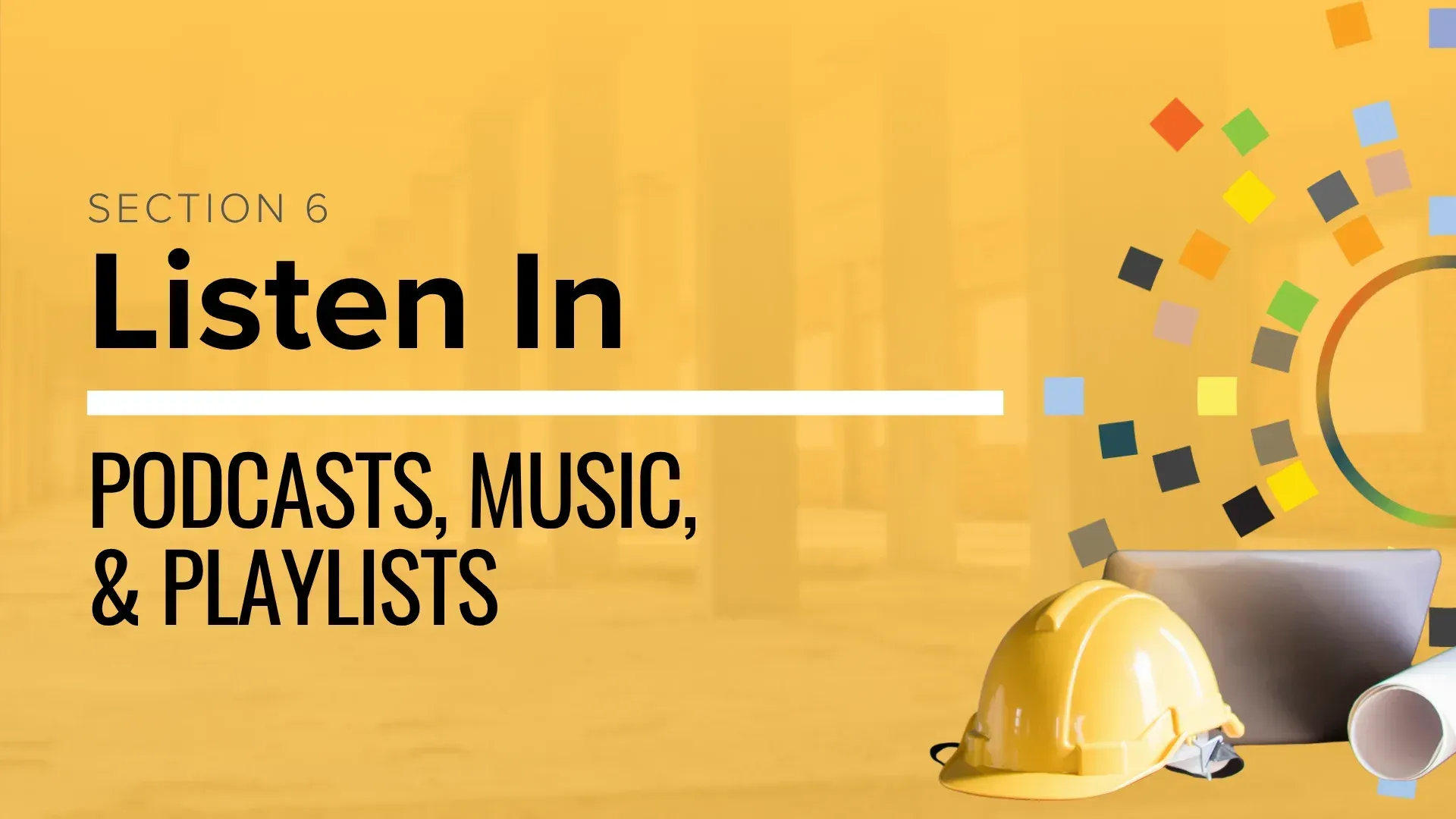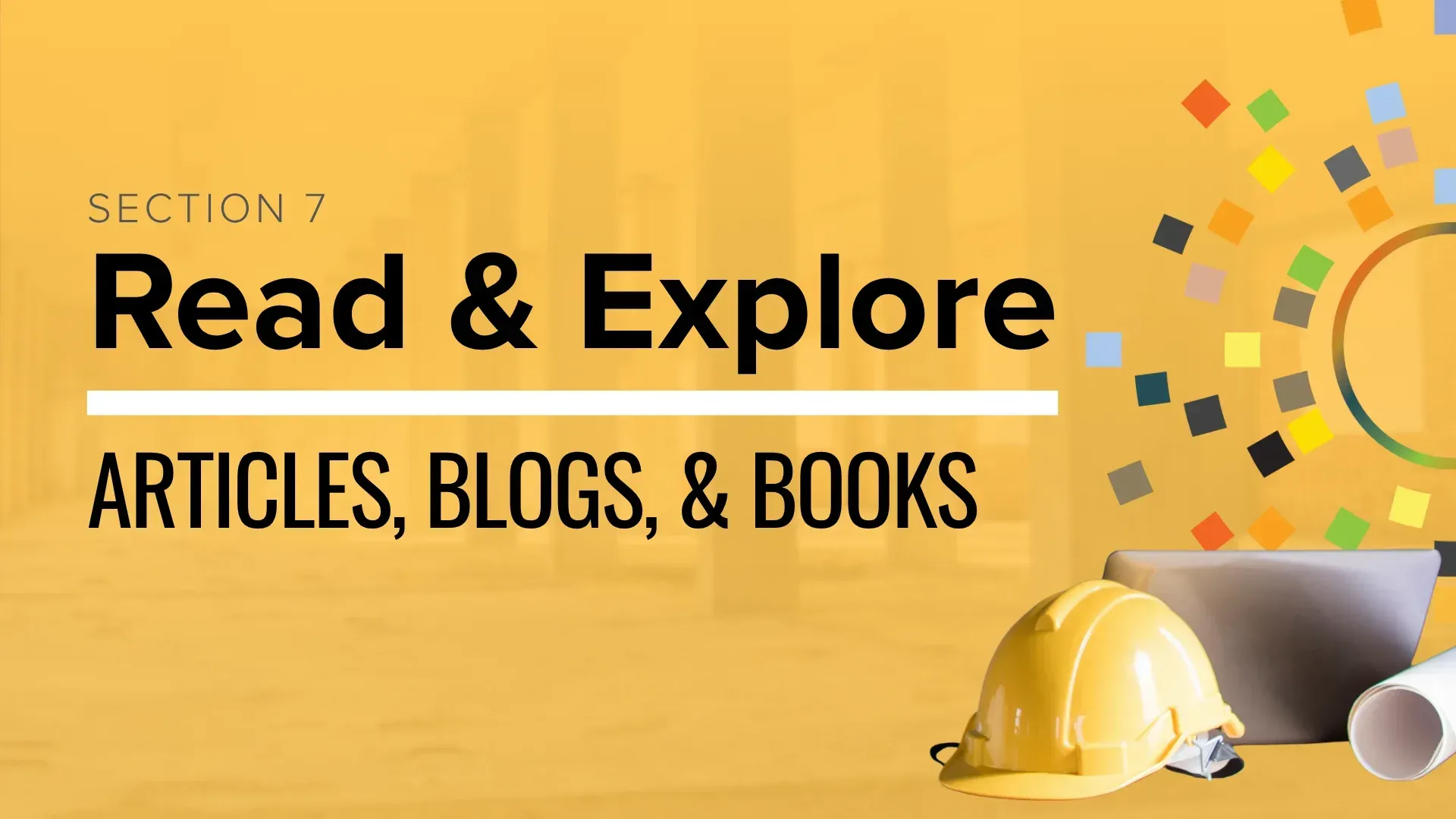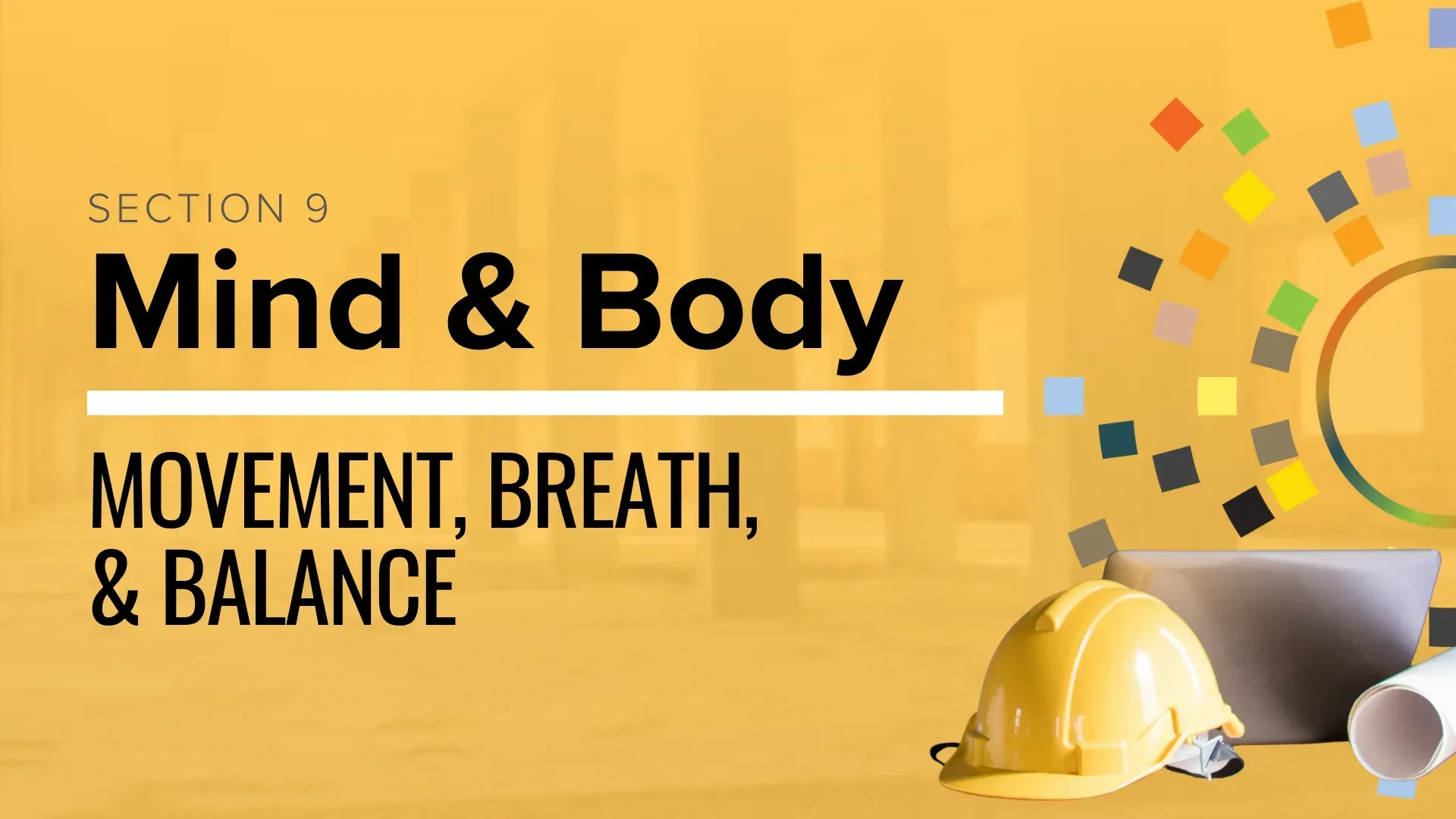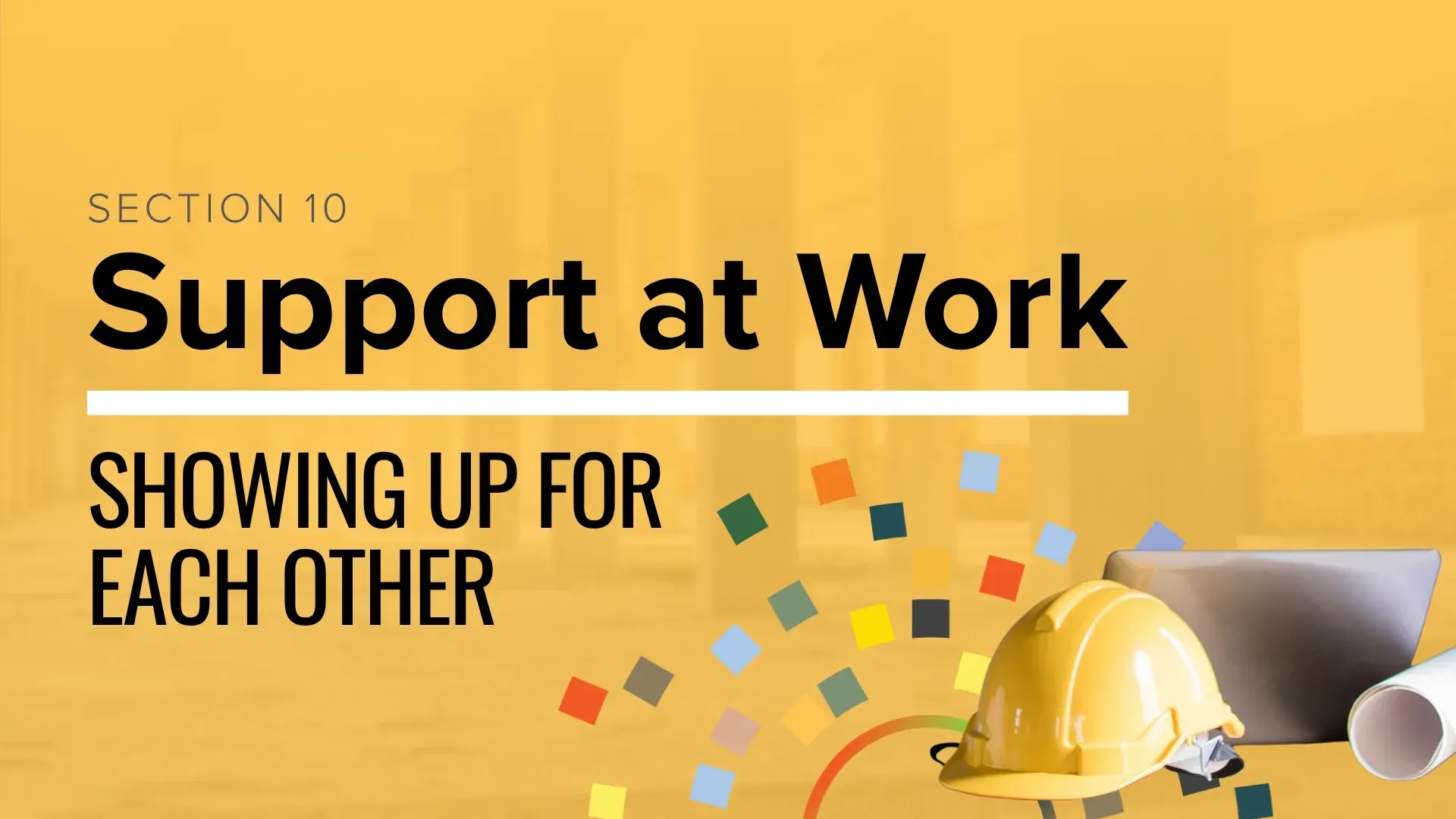Construction Inclusion Week Mental Health Resources: Section 8
Mental Health Apps: Tools for Daily Support
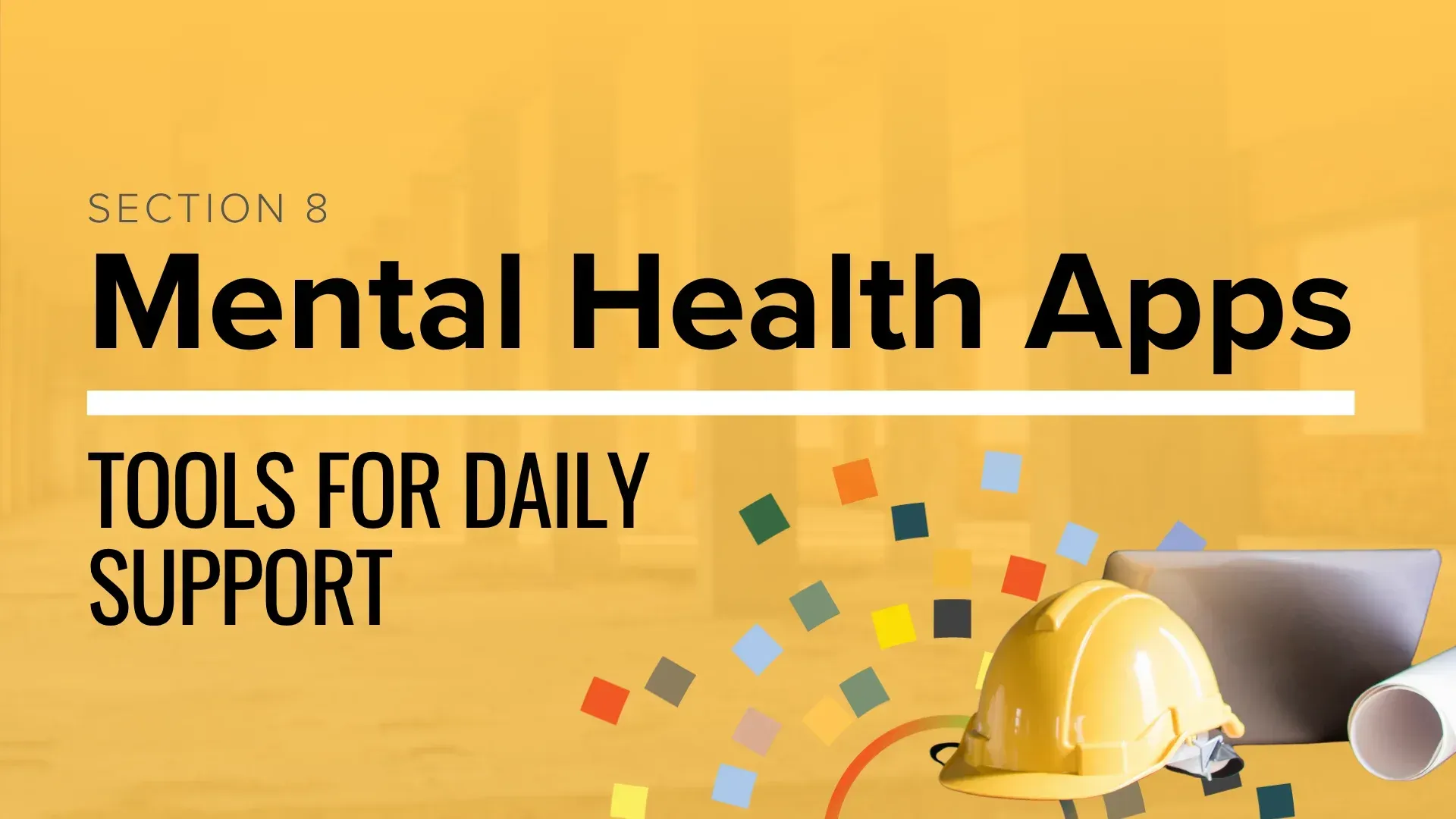
Integrate mental health apps into your daily routine, providing practical support for managing emotions, enhancing resilience, and fostering well-being.
In an increasingly fast-paced world, mental health apps offer a convenient way to prioritize your emotional well-being. These tools are designed to fit seamlessly into your life, providing support wherever you are. Whether you’re looking to manage anxiety, track your moods, build resilience, or simply unwind after a long day, these apps can serve as valuable companions on your mental health journey. With the help of technology, you can take proactive steps toward understanding and improving your mental health, making self-care more accessible than ever.
Get Started
Explore Further
The Convenience of Daily Support
Incorporating mental health apps into your daily routine can provide immediate access to support when you need it most. The convenience of having mental health resources at your fingertips means you can engage with them during moments of stress, uncertainty, or reflection. This accessibility allows you to practice self-care in real-time, whether you’re at home, at work, or on the go. By integrating these tools into your life, you can create a consistent practice of checking in with your mental health, making it easier to recognize patterns and address challenges as they arise.
Empowerment Through Self-Monitoring
Many mental health apps offer features that encourage self-monitoring, such as mood tracking and journaling. This practice can empower you to take an active role in understanding your emotional landscape. By regularly logging your feelings and experiences, you can identify triggers, patterns, and areas for growth. This self-awareness is a crucial step in managing mental health, as it allows you to make informed decisions about your well-being. Over time, you may find that this practice not only enhances your understanding of yourself but also fosters a sense of agency in navigating your mental health journey.
Building Resilience and Coping Skills
Mental health apps often provide resources for building resilience and developing coping skills. Through guided exercises, mindfulness practices, and educational content, you can learn techniques to manage stress, anxiety, and other challenges. Engaging with these resources can help you cultivate a toolkit of strategies that you can draw upon in difficult moments. As you practice these skills, you may find that your ability to cope with life’s ups and downs improves, leading to greater emotional stability and resilience. This proactive approach to mental health can empower you to face challenges with confidence and clarity.

Resources
Whether you're assessing your emotional foundations, connecting with immediate support, or seeking professional guidance, the following resources work alongside your strengths to keep you strong on and off the job.
APPS
Headspace
Focus: Meditation, sleep, stress relief
What it offers: Guided meditations, daily check-ins, sleep sounds, and stress-reduction tips for
everyday users.
https://www.headspace.com
Calm
Focus: Relaxation, sleep, mindfulness
What it offers: Guided meditations, breathing exercises, bedtime stories, and daily calm routines.
https://www.calm.com
Insight Timer
Focus: Mindfulness, anxiety relief, sleep support
What it offers: The world’s largest library of free meditations, music tracks, talks, and body scans.
https://insighttimer.com
PTSD Coach
Focus: PTSD management (originally developed for veterans, now open to all)
What it offers: Education about PTSD, tools for tracking symptoms, grounding exercises, and crisis plans.
https://mobile.va.gov/app/ptsd-coach
Sanvello
Focus: Stress, anxiety, and depression
What it offers: Cognitive Behavioral Therapy (CBT) tools, journaling prompts, guided journeys, and progress
tracking.
https://www.sanvello.com
Happify
Focus: Building resilience and positive psychology
What it offers: Activities and games designed by psychologists to reduce stress and increase happiness.
https://www.happify.com
MoodTools
Focus: Depression management and suicide prevention
What it offers: Mood tracking, safety plans, video guides, thought journaling, and self-assessment tools.
https://www.moodtools.org
Youper
Focus: Self-guided emotional support
What it offers: AI-powered conversations that help users reflect on thoughts, track moods, and
reduce anxiety.
https://www.youper.ai
Daylio
Focus: Mood and habit tracking
What it offers: Track your daily moods and activities without writing a single word — just tap and go.
https://daylio.net
7 Cups
Focus: Peer connection and active listening
What it offers: 24/7 anonymous text chats with trained listeners, group support, and access to
professional therapists.
https://www.7cups.com
Spiral Up
Focus: Stress management
What it offers: Free neuroscience-based app that helps you process emotions and release stress in minutes
https://www.spiralup.org
I Am Sober
Focus: Sober lifestyle support
What it offers: Break bad habits, build new ones, and connect with others who understand what you’re
going through.
https://iamsober.com/en/site/home
Personal Assessment
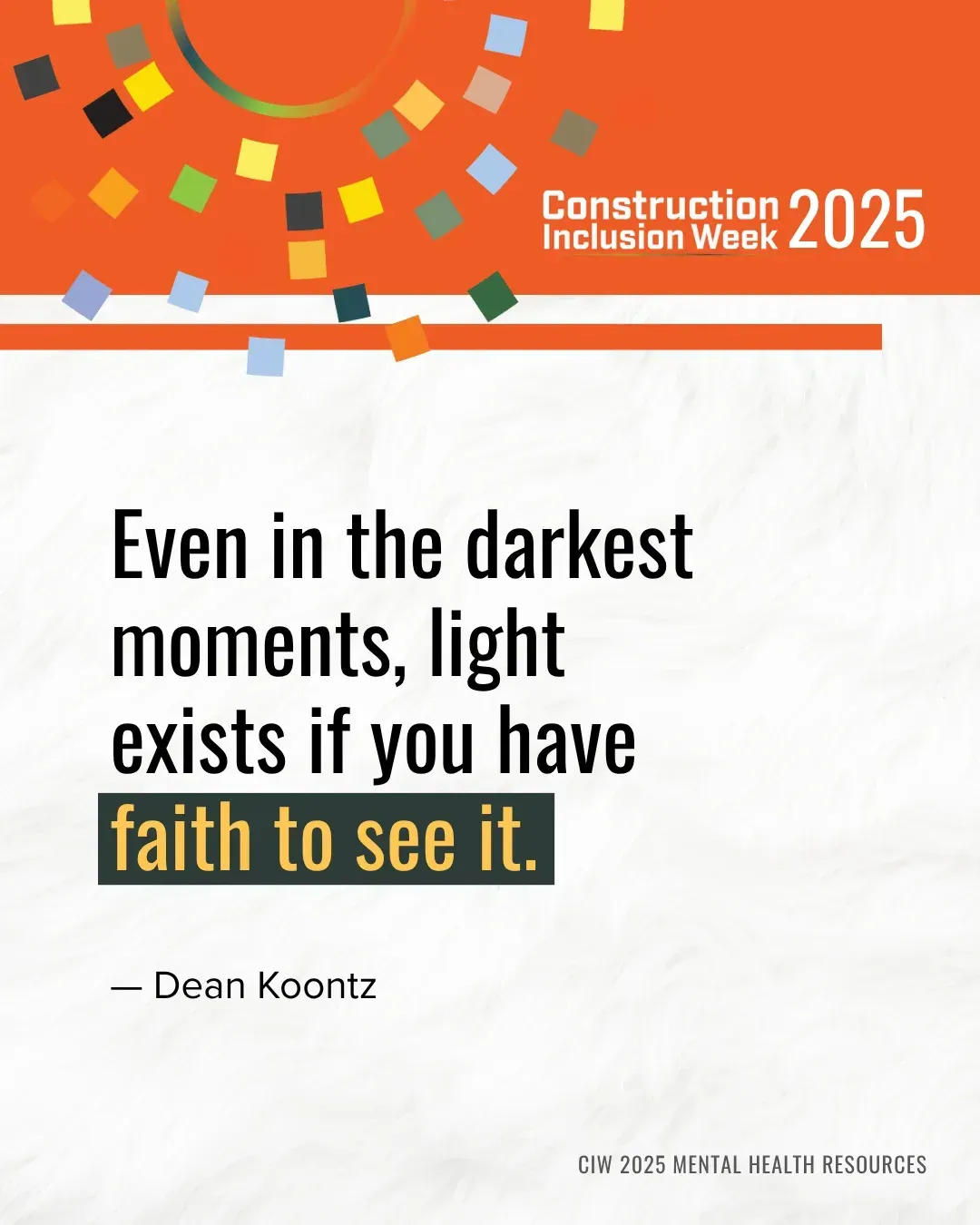
Gentle Prompts for Reflection
How often do I check in with my mental health, and how could an app support this practice?
What specific features in a mental health app would be most beneficial for my needs?
How comfortable am I with self-monitoring my emotions and experiences?
What coping strategies have I found effective in the past, and how can I incorporate them into my daily routine?
In what ways can I use technology to enhance my self-care practices?
Quotes for Reflection
“The greatest weapon against stress is our ability to choose one thought over another.” — William James
“You don’t have to control your thoughts. You just have to stop letting them control you.” — David Allen
“The mind is everything. What you think you become.” — Buddha
“Self-care is not a luxury. It is a necessity.” — Audre Lorde
“Mental health is not a destination, but a process. It’s about how you drive, not where you’re going.” — Noam Shpancer




